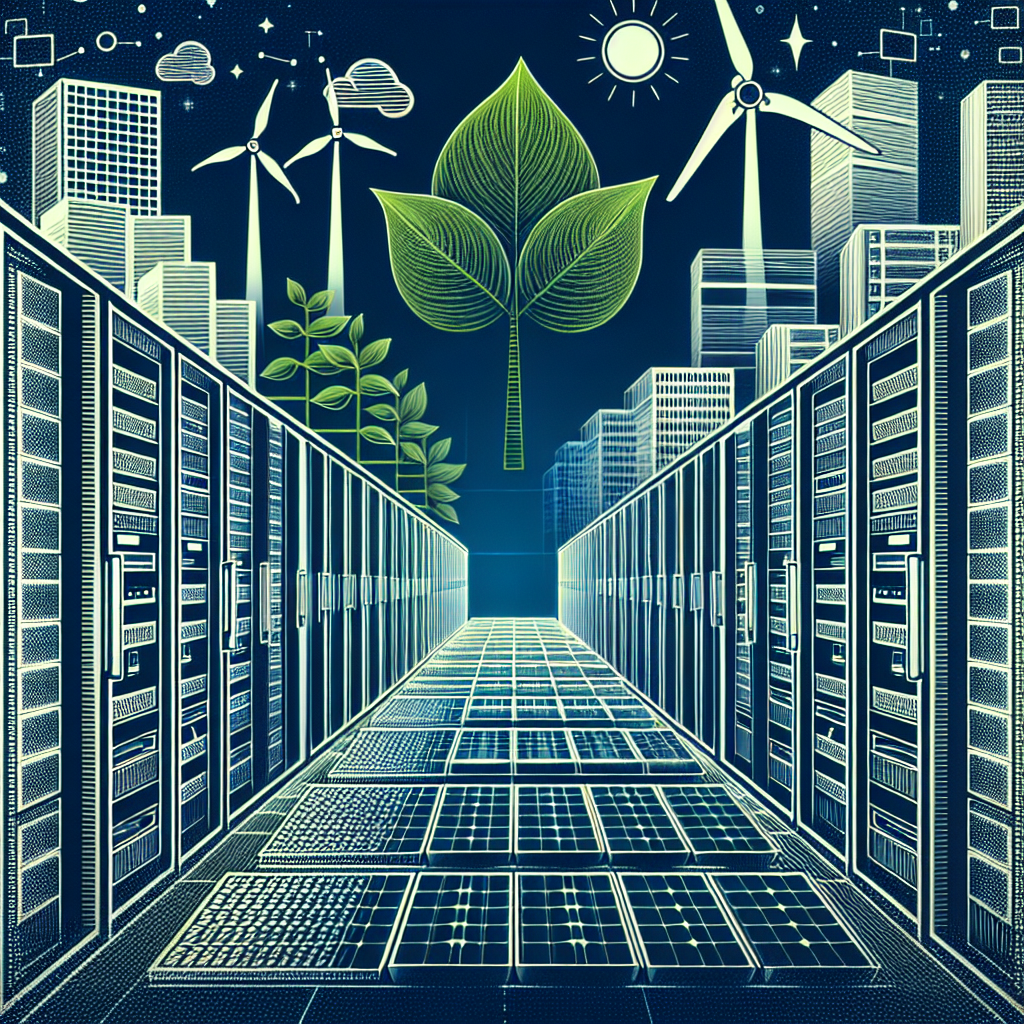Data centers are essential for the functioning of modern businesses, but they also consume a significant amount of energy. In fact, data centers are responsible for a large portion of global energy consumption. As businesses strive to reduce their carbon footprint and operate more sustainably, implementing sustainable practices in data centers is crucial for long-term energy efficiency.
There are several ways in which businesses can implement sustainable practices in their data centers to reduce energy consumption and minimize their environmental impact. One of the most effective ways to improve energy efficiency in data centers is through the use of energy-efficient hardware. This includes servers, storage devices, and networking equipment that are designed to consume less power while still delivering high performance. By investing in energy-efficient hardware, businesses can significantly reduce their overall energy consumption and operating costs.
Another important aspect of sustainable data center practices is the proper management of cooling systems. Cooling accounts for a large portion of energy consumption in data centers, as servers generate a significant amount of heat. By optimizing cooling systems and implementing strategies such as hot aisle/cold aisle containment, businesses can reduce the amount of energy needed to cool their data centers.
In addition to hardware and cooling systems, businesses can also implement virtualization and consolidation techniques to improve energy efficiency in their data centers. Virtualization allows businesses to run multiple virtual servers on a single physical server, reducing the overall number of servers needed and therefore decreasing energy consumption. Consolidation involves reducing the number of physical servers by consolidating workloads onto fewer, more powerful servers.
Furthermore, businesses can also explore renewable energy sources to power their data centers. Solar panels, wind turbines, and other renewable energy sources can be used to supplement traditional power sources and reduce reliance on fossil fuels. By investing in renewable energy, businesses can not only reduce their carbon footprint but also potentially save money in the long run.
Lastly, implementing energy monitoring and management systems can help businesses track and optimize their energy usage in real-time. By monitoring energy consumption, businesses can identify areas for improvement and make adjustments to reduce energy waste.
In conclusion, implementing sustainable practices in data centers is essential for long-term energy efficiency and environmental sustainability. By investing in energy-efficient hardware, optimizing cooling systems, implementing virtualization and consolidation techniques, exploring renewable energy sources, and utilizing energy monitoring and management systems, businesses can significantly reduce their energy consumption and operating costs. Implementing these sustainable practices not only benefits the environment but also helps businesses operate more efficiently and responsibly in the long run.


Leave a Reply